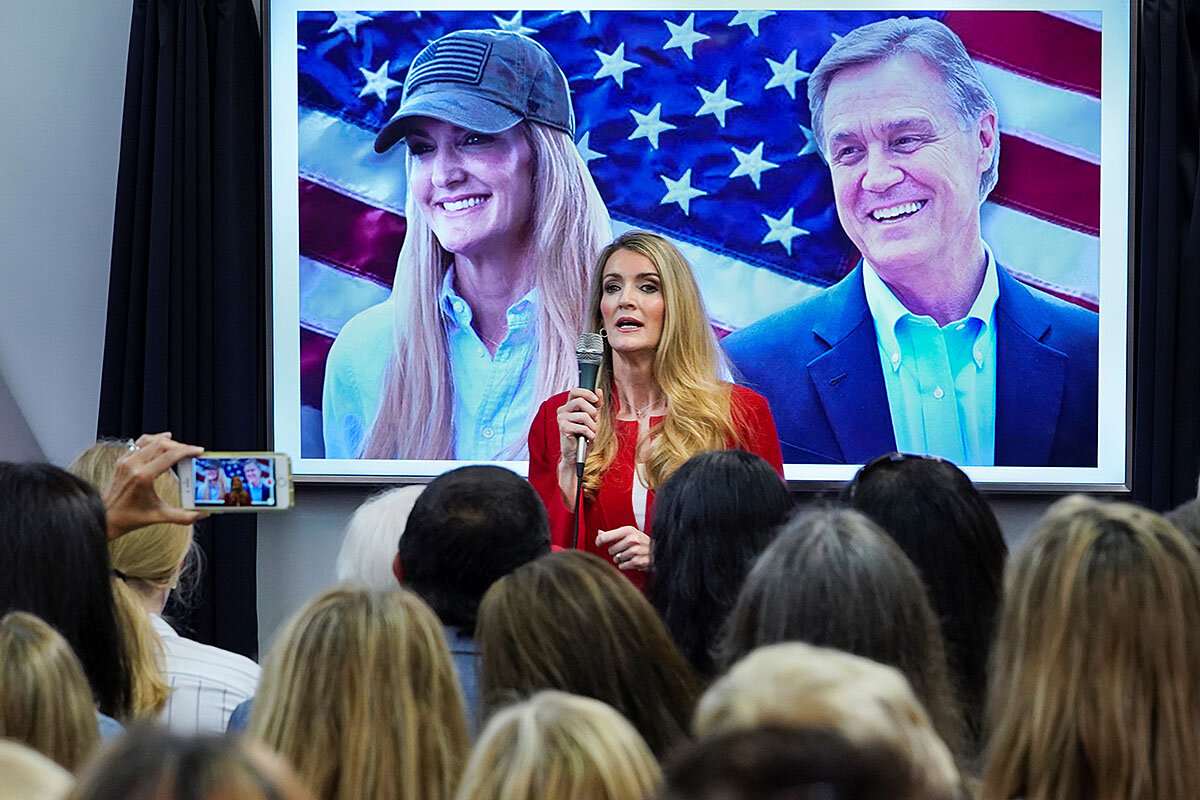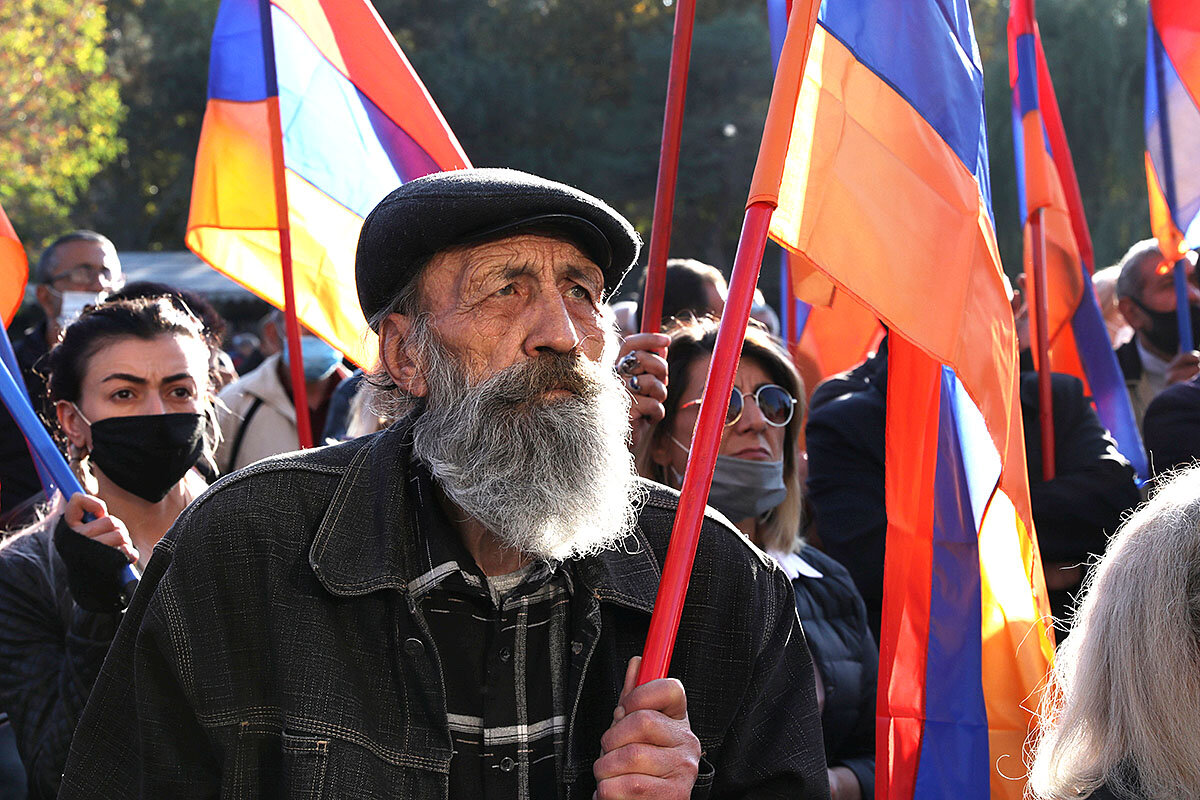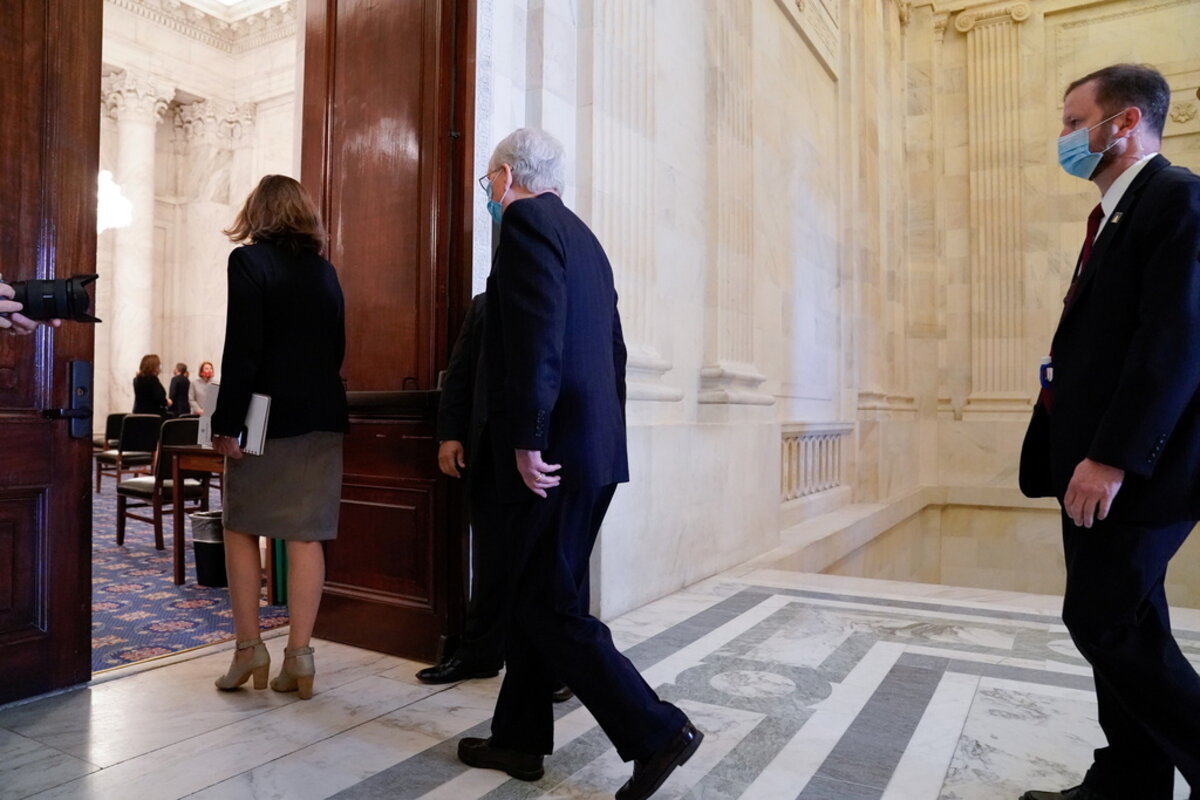Call them peace committees. Or simply groups of respected elders who put principle before party or person. In many countries, they have played a pivotal role before or after a tense election to remind citizens of higher purpose than partisan gain or personal loyalty. Now, with the United States in postelection stress over President Donald Trump’s unsubstantiated claim of victory, the U.S. may be ripe for quiet intervention by a few truth-telling seniors in the Republican camp.
The U.S. has a strong precedent for saving its democracy through gentle persuasion of a president by a trusted few in his party. On Aug. 7, 1974, three top Republican lawmakers told President Nixon in person that he lacked support in Congress to stay in office after it became clear he had lied about the Watergate cover-up. The next day, Nixon resigned.
“For me, this is a sad day. I admire Richard Nixon, for the many great things he has done for the people of America and the people of the world,” said one of the three lawmakers, House Republican leader John Jacob Rhodes. But, he added, the entire system of government relies on principle and, in Nixon’s case, the principle of equal justice under the law must prevail.
For Mr. Trump, his assertions in at least a half-dozen lawsuits alleging voter fraud have so far been proved false or baseless. His use of the courts may be legitimate, but the lack of evidence erodes his legitimacy in not conceding the election or in trying to cling to power through his command of the executive branch. As that legitimacy disappears and the integrity of the vote count further emerges in Joe Biden’s favor, it opens a door for GOP politicians – those who are both legitimate in the eyes of the public and closest to the president – to quietly ease him toward a handover of the Oval Office come Jan. 20.
An example of this unusual type of democracy protector at work happened in Nigeria’s 2015 presidential election. Fearing violence like that in a 2011 election and a postelection standoff, 14 presidential candidates and their parties agreed to the setup of a national peace committee. The panel consisted of esteemed clergy, statesmen, businesspeople, and a former head of state. The point was to remind citizens – and the losing candidates – that they have a civic identity beyond party, ethnicity, religion, or other volatile differences and that identity includes respect for an election outcome.
The committee was able to persuade President Goodluck Jonathan to concede despite postelection tensions. For the first time in Africa’s largest economy, a president agreed to a peaceful transfer of power to a duly elected rival. “Nobody’s ambition is worth the blood of any Nigerian,” Mr. Jonathan said. For an election in 2019, a new national peace committee again helped in reducing violence and avoiding a postelection standoff.
In several countries, from Kyrgyzstan to Bolivia to Ghana, local or national groups have been set up to mediate between rivals during elections or referendums. They often included credible religious and traditional leaders who advocated at high levels for a peaceful political outcome. With wisdom they provided a moment of truth and a voice of unity.
In the U.S., it is Mr. Trump’s ardent supporters as much as Mr. Trump who need and could then accept an American-style peace committee speaking to the president. The news media, Democratic leaders, and low-level Republicans have failed at that in this era of high distrust. A widely respected group of senior Republicans – who are seen representing the ideals at stake – might both persuade Mr. Trump and heal the nation’s widening breach.
 Husna Haq
Husna Haq











